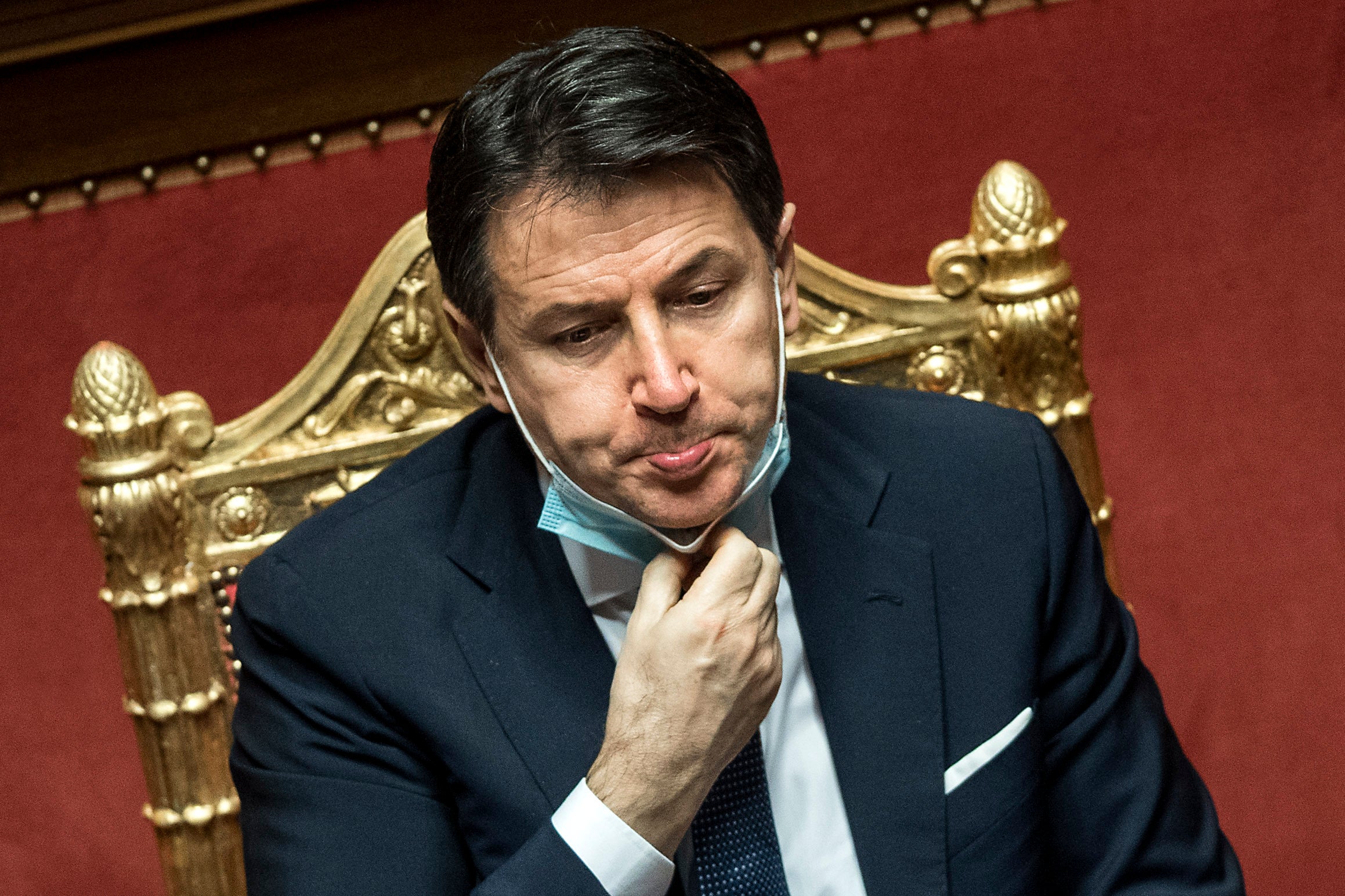Italian PM Conte works to cement majority after narrow vote
Premier Giuseppe Conte is working to solidify his majority in parliament after narrowly winning a Senate confidence vote after a junior coalition ally yanked his support over Conte’s handling of the coronavirus pandemic

Your support helps us to tell the story
From reproductive rights to climate change to Big Tech, The Independent is on the ground when the story is developing. Whether it's investigating the financials of Elon Musk's pro-Trump PAC or producing our latest documentary, 'The A Word', which shines a light on the American women fighting for reproductive rights, we know how important it is to parse out the facts from the messaging.
At such a critical moment in US history, we need reporters on the ground. Your donation allows us to keep sending journalists to speak to both sides of the story.
The Independent is trusted by Americans across the entire political spectrum. And unlike many other quality news outlets, we choose not to lock Americans out of our reporting and analysis with paywalls. We believe quality journalism should be available to everyone, paid for by those who can afford it.
Your support makes all the difference.Italian Premier Giuseppe Conte worked to solidify his majority in parliament Wednesday after narrowly winning a Senate confidence vote after a junior coalition ally yanked his support over Conte’s handling of the coronavirus pandemic
Conte was expected to brief President Sergio Mattarella on his prospects to keep governing, though the timing was uncertain. With a reduced majority, Conte will have to cobble together support from outside the current coalition to pass legislation, including aid to help Italy’s pandemic-battered economy.
Conte’s government on Tuesday survived what amounted to a confidence vote with a 156-to-140 win, with 16 abstentions. The abstentions came from the centrist party of ex-Premier Matteo Renzi who pulled his ministers from the government last week after complaining about Conte’s leadership and management of the European Union’s pandemic recovery funds.
Conte’s victory margin fell short of the 161 votes needed for an absolute majority in the upper chamber, weakening his already fragile coalition of the 5-Star Movement, the center-left Democratic Party and a smaller party.
Had Conte lost the vote, he would have been required to resign.
After the votes were counted, Conte said he intended to press on to confront the pandemic, the economic recession and Italy’s COVID-19 vaccination campaign, as well as the spending plan for the more than 2 billion euros ($2.4 billion) in EU recovery funds that Italy is expected to receive.
“Now the objective is to solidify the majority. Italy doesn’t have a minute to lose,” he tweeted.
However, his coalition is already facing pressure from the center-right opposition, which has said it wants an early election.
“The numbers speak clearly,” said Giorgia Melloni, head of the small but rising Brothers of Italy party. “We’re waiting to learn if the president of the republic thinks that in these conditions Conte can go forward.″
But the center-right was thrown a curveball when two senators from ex-Premier Silvio Berlusconi’s Forza Italia party broke ranks with the opposition and voted in favor of Conte’s leadership.
In the lower Chamber of Deputies, where the 16-month-old government holds a more comfortable margin, Conte won a first confidence vote on Monday.
Last week, Renzi yanked his two ministers from his Italia Viva (Italy Alive) party, in a spat over how much control Conte would hold in deciding how the EU largesse gets spent.
Even though he triggered the crisis, Renzi indicated he would consider returning to Conte’s coalition if asked. However, the Democrats have ruled out accepting him back given what they said was an irresponsible power play during Italy’s worst health care crisis in a century.